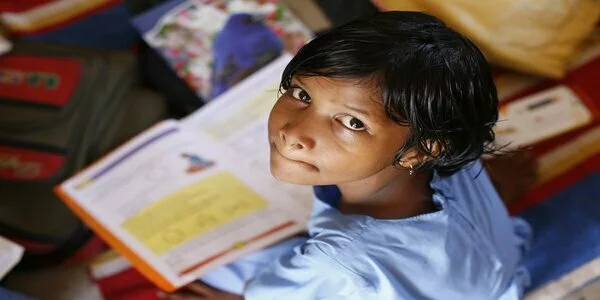School education in India is administered, regulated and facilitated by many different bodies like the CBSE, KVS, NVS, and NCERT, with each performing a different/unique role. For example, the CBSE is a board of education that regulates the education policy in private and public schools that are affiliated to it. Meanwhile, the NCERT is well-known for preparing and publishing model textbooks and supplementary material for central and state-government schools.
In this article we introduce you to bodies associated with school education and the role they play.
School Education Bodies
| S.No. | Name of the Organisation | Website |
| 1 | Central Board of Secondary Education (CBSE) | http://www.cbse.nic.in/ |
| 2 | Central Institute of Education Technology (CIET) | http://ciet.nic.in/ |
| 3 | Central Tibetan School Administration (CTSA) | http://ctsa.nic.in/ |
| 4 | Kendriya Vidyalaya Sangathan (KVS) | http://kvsangathan.nic.in/ |
| 5 | National Bal Bhawan | – |
| 6 | National Council for Educational Research and Training (NCERT) | http://ncert.nic.in/ |
| 7 | National Institute of Open Schooling (NIOS) | https://www.nios.ac.in/ |
| 8 | Navodaya Vidyalaya Samiti (NVS) | https://navodaya.gov.in |
| 9 | National Council for Teacher Education (NCTE) | https://ncte.gov.in |
Also Read:
Higher Education Apex Level Bodies
CAT 2020
LSAT India 2020
What is the CBSE?
The Central Board of Secondary Education (CBSE) is an education board (or board of education) for public and private schools and is controlled and managed by the GOI. The CBSE has the mandate to conduct the final examinations for Class 10 and Class 12. Schools affiliated to the board follow the NCERT curriculum.
Objectives:
- To define appropriate approaches of academic activities to provide STRESS free, child centered and holistic education to all children without compromising on quality
- To analyze and monitor the quality of academic activities by collecting the feedback from different stakeholders
- To develop norms for implementation of various academic activities including quality issues; to control and coordinate the implementation of various academic and training programmes of the Board; to organize academic activities and to supervise other agencies involved in the process
- To adapt and innovate methods to achieve academic excellence in conformity with psychological, pedagogical and social principles.
- To encourage schools to document the progress of students in a teacher and student friendly way
- To propose plans to achieve quality benchmarks in school education consistent with the National goals
- To organize various capacity building and empowerment programmes to update the professional competency of teachers
- To prescribe conditions of examinations and conduct public examination at the end of Class X and XII. To grant qualifying certificates to successful candidates of the affiliated schools.
- To fulfill the educational requirements of those students whose parents were employed in transferable jobs
- To prescribe and update the course of instructions of examinations
- To affiliate institutions for the purpose of examination and raise the academic standards of the country.
The prime focus of CBSE is on:
- Innovations in teaching-learning methodologies by devising students friendly and students centered paradigms
- Reforms in examinations and evaluation practices.
- Skill learning by adding job-oriented and job-linked inputs
- Regularly updating the pedagogical skills of the teachers and administrators by conducting in service training programmes, workshops etc.
Source: CBSE
Kendriya Vidyalaya Sangathan (KVS)
The KVS is an autonomous body under the MHRD, Government of India. It was established to provide uninterrupted education to wards of the transferable Central Government employees. It currently has 1064 functional schools in India.
Outside India, KVS runs 3 schools: Kathmandu, Tehran and Moscow.
The Kendriya Vidyalayas have a four-fold mission:
- To cater to the educational needs of children of transferable Central Government including Defence and Paramilitary personnel by providing a common programme of education;
- To pursue excellence and set the pace in the field of school education;
- To initiate and promote experimentation and innovations in education in collaboration with other bodies like the Central Board of Secondary Education (CBSE) and National Council of Educational Research and Training (NCERT) etc.
- To develop the spirit of national integration and create a sense of “Indianness” among children.
Source: KVS website
To read objectives and salient features of KVS – Click here
Navodaya Vidyalaya Samiti (NVS)
The Navodaya Vidyalaya Samiti (NVS) is an autonomous body under the MHRD, Government of India. It was registered as a society with the primary objective to provide good quality modern education to the talented children predominantly from the rural areas, without regard to their family’s socio-economic condition.
At present, the NVS has 589 functional residential schools, called Jawahar Navodaya Vidyalayas.
Admission process
Admission in Jawahar Navodaya Vidyalayas is made on the basis of a merit test, called the Jawahar Navodaya Vidyalaya Selection Test (JNVST).
The entrance test is designed, developed and conducted by the CBSE. The test is objective type, class neutral and designed to ensure that rural children are not at a disadvantage while attempting it.
Where to take the test: The test is held annually on an All India basis and at block and district levels.
Reservation of seats: More than 75% of seats are reserved for children from the rural areas
To learn more – Click here
National Council for Educational Research and Training (NCERT)
The National Council of Educational Research & Training (NCERT) is an apex RESOURCE organization to assist and advise the Central and the State Governments on academic matters related to SCHOOL education. It provides ACADEMIC and TECHNICAL support for qualitative improvement of school education and undertakes programmes related to research, development, training, extension, international cooperation, publication and dissemination of information. – MHRD
The major objectives of NCERT and its constituent units are to:
- undertake, promote and coordinate research in areas related to school education;
- prepare and publish model textbooks, supplementary material, newsletters, journals and develop educational kits, multimedia digital materials, etc.
- organise pre-service and in-service training of teachers;
- develop and disseminate innovative educational techniques and practices;
- collaborate and network with state educational departments,
- universities, NGOs and other educational institutions;
- act as a clearing house for ideas and information in matters related to school education;
- act as a nodal agency for achieving the goals of Universalisation of Elementary Education.
Source: NCERT website
National Institute of Open Schooling (NIOS)
The National Institute of Open Schooling (NIOS) with approximately 1.6 million learners on roll has emerged as the largest open schooling organization in the world. It offers open and distance learning programmes ranging from basic education to senior secondary education and a large number of vocational education courses. It provides opportunities to interested learners by making available the courses/programmes of study through open and distance learning mode – MHRD


